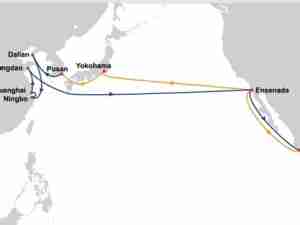In a letter seen by Reuters and sent to the Baltic's board of directors, the advisory Freight Market Information Users' Group (FMIUG), whose members include Cargill, Morgan Stanley and BHP Billiton, said the issue was becoming urgent.
"We are now becoming concerned at the slow progress towards a roll-out," FMIUG dry bulk chairman Stefan Albertijn wrote, adding that the exchange was the "neutral heart" of shipping.
"If freight were to become tradable on a non-Baltic Exchange controlled venue we feel an important element of the market would move outside the Baltic Exchange's reach and influence."
In response, a Baltic Exchange spokesman said the project remained "very much on track" and subject to FSA approval and final technical testing, a launch was expected in late spring.
"The concerns expressed by this key group of freight derivative traders underline the very reasons the Baltic Exchange embarked on developing a trading screen," he said.
"We are continuing to consult with the FFA brokers because their support for the system is a key component of its success."
Freight forward agreements (FFAs), which allow a buyer to take a position on where freight rates will stand at a point in the future, are currently not traded on an exchange.
FFA brokers, fearing a loss of commission business in this niche market, have objected to an FSA regulatory requirement which would take away the compulsory nomination of brokers in every trade.
Albertijn said users appreciated that FFA brokers were "naturally reluctant to see change in the trading process".
"We believe they understand it is inevitable and that they will support the wishes of their customers in the interest of the overall health and growth of the market."
Challenges
Highlighting the growing challenges, Singapore-based Cleartrade Exchange said this month it had received regulatory approval "in principle" from the Monetary Authority of Singapore to launch a global dry bulk futures trading platform.
Last year brokers rejected a joint venture proposal from the London Metal Exchange to launch an exchange for FFA trading.
Albertijn said it was increasingly likely that due to U.S. and European Union moves to tighten financial market regulations major players in over-the-counter (OTC) or OTC cleared FFAs would be forced to report their exposures above a certain threshold to supervisors unless the derivatives were traded on an organised market venue.
"Many of our users will therefore have to decide whether to invest in these or reduce or stop their activities in the (FFA) market to avoid crossing the reporting threshold."
The FFA market has grown from its beginnings in 1985 and was estimated to be valued at an all-time high of $130 billion to $150 billion in 2008 before the economic downturn. The value of dry transactions fell to around $27 billion last year and was expected to remain flat this year, Cleatrade said. (Reuters)






